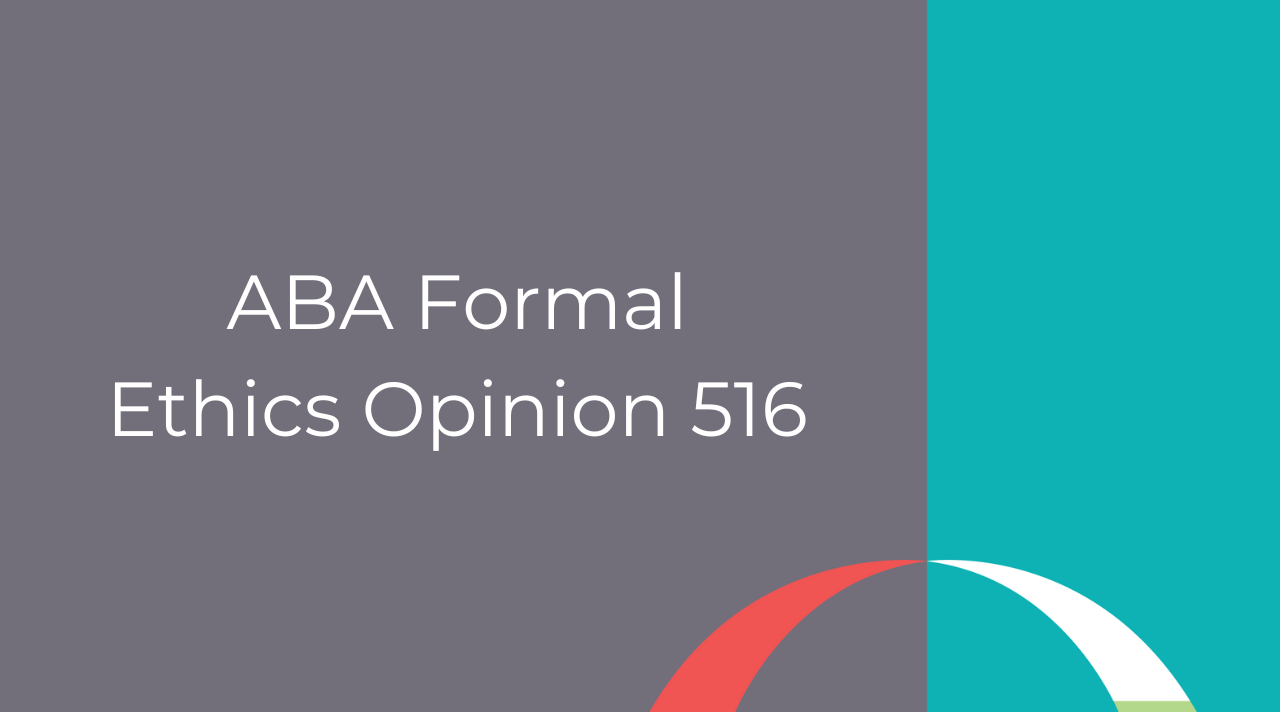
ABA Ethics Opinion 516: When Can a Lawyer Voluntarily Withdraw Without Harming the Client?
The ABA Standing Committee on Ethics and Professional Responsibility has issued Formal Ethics Opinion 516, offering clarification on Model Rule 1.16(b)(1)—which allows a lawyer to voluntarily withdraw from a representation if it can be done without “material adverse effect” on the client’s interests.
Key Takeaways:
- Defining “Material Adverse Effect”: A lawyer’s withdrawal would be considered materially adverse to the client if it causes:
- Significant harm to the progress of the matter;
- A significant increase in cost to the client;
- Or a significant setback to the client’s legal objectives.
- Examples Where Withdrawal Might Be Permitted:
- The matter is in its early stages;
- Successor counsel is in place;
- The withdrawing lawyer has completed most of the work;
- No ongoing matter is pending (e.g., for “as-needed” legal services);
- The lawyer helps mitigate harm by assisting with the transition or forgoing fees for duplicated work.
- Lawyer’s Motivation Is Not a Factor: The reason for withdrawal is irrelevant under Rule 1.16(b)(1). Even if the lawyer’s motivation is to take on another client (potentially adverse to the former one), withdrawal is still permitted—as long as it does not materially harm the original client’s interests.
- “Hot Potato” Doctrine vs. Ethics Rules: While courts may disapprove of lawyers who drop one client to take on a more lucrative or adverse one (known as the “hot potato” rule), the opinion clarifies that this doctrine is not grounded in the ethics rules. Instead, it’s a judicial doctrine that may guide disqualification rulings but does not override Rule 1.16(b)(1).
- Practical Guidance: Lawyers should be thoughtful when accepting or exiting engagements—but where appropriate, may end a representation as long as they avoid significantly harming the client in that specific matter.
Dissent: A short dissent within the opinion cautions that downplaying the hot potato doctrine could mislead lawyers or complicate conflict scenarios. It encourages clearer guidance, especially for transactional lawyers and firms managing dormant client relationships.
Bottom line: Lawyers may withdraw from a client representation for any reason—even to avoid a conflict or take on new work—if the exit can be done without causing significant harm to the client’s matter.
Read the full opinion here: https://www.americanbar.org/content/dam/aba/administrative/professional_responsibility/ethics-opinions/aba-formal-opinion-516.pdf

